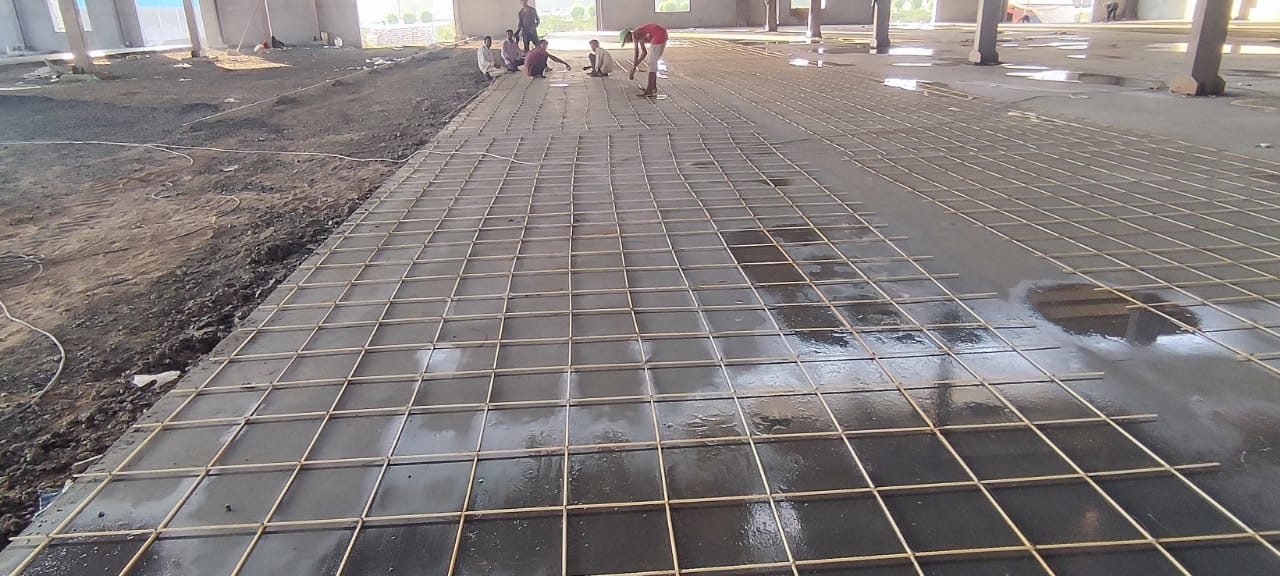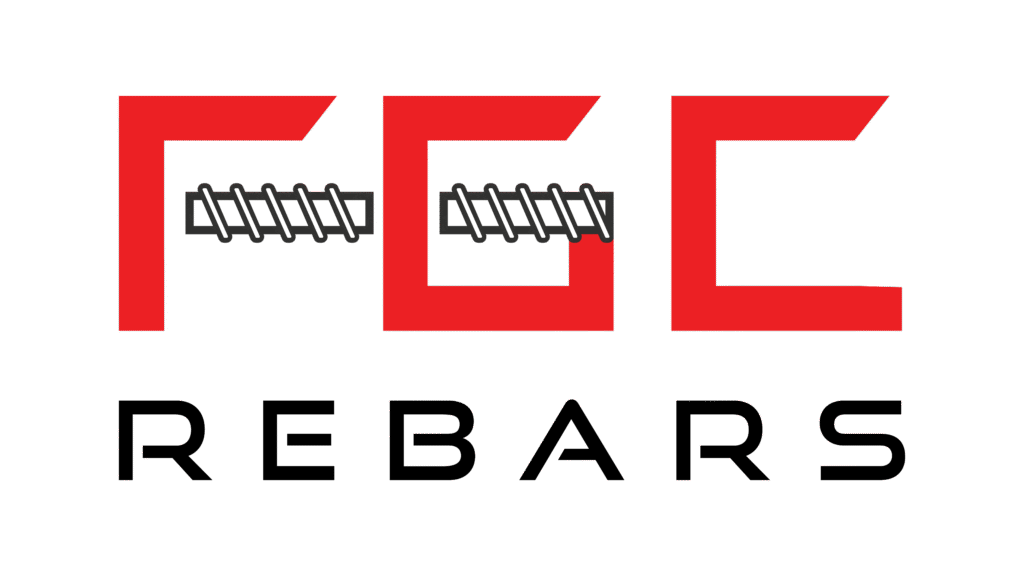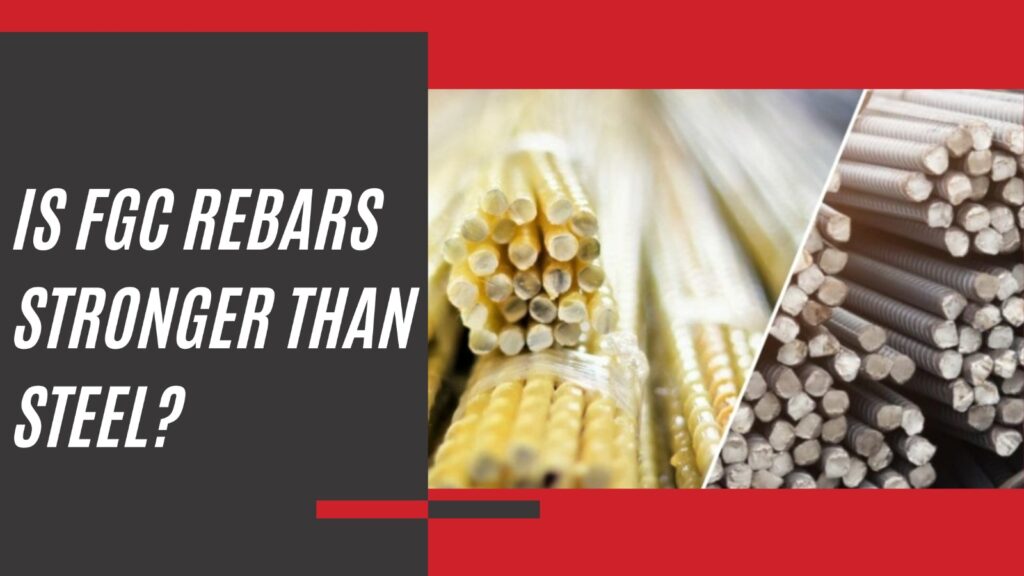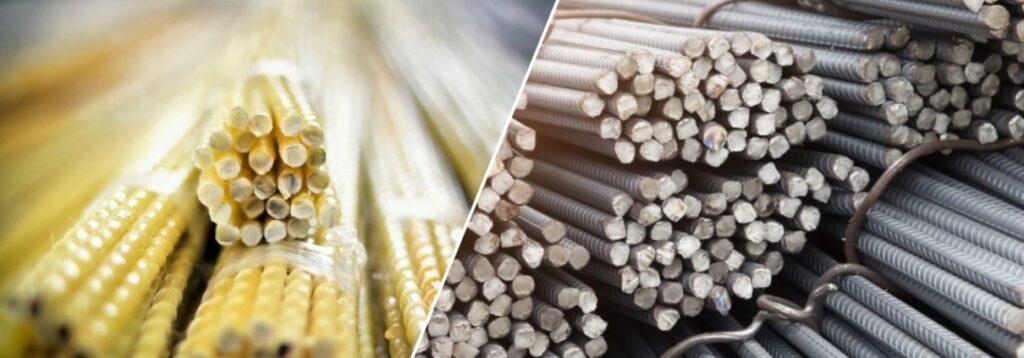In today’s era of contemporary building, advancements in material technology are moving quickly, offering new answers to persistent problems. A notable example of this progress is Fiberglass Composite (FGC) rebar or gfrp rebar.

FGC rebar is an upcoming material which is taking the construction industry. In this blog post, we’ll explore the various benefits of fiberglass rebar in footings and floorings as well as its applications.
What are FGC Rebars?
FGC or fiberglass rebars, are composite of made from glass fibers and resin which are lighter and have 2X tensile strength.
Here are some benefits of FGC rebars:
1)Tensile Strength – Fiberglass rebars boast a strength that is twice that of steel.
2) Lightweight – These rebars are significantly lighter, which can be handle easily and thus, reducing the use for additional labor.
3) Corrosion Resistance – Fiberglass are not easily corroded unlike steel rebars and can be used in coastal areas where maximum corrosion occurs.
4) Cost Efficiency – The use of fiberglass rebars will lead to savings of up to 20-25% on material expenses, and this calculator helps to determine the exact amount.
5)Non-Conductive – These rebars does not conduct electricity and can be used in many industries where conductivity is there.
Link: Rebar Cost Savings
Applications in Flooring & Footing
- Residential and Commercial Buildings Flooring: FGC rebar enhances durability and reduces maintenance costs, keeping concrete floors intact in high-moisture environments like basements and ground floors.
- Industrial Floors: Ideal for large areas such as stadium, because of its lightweight, chemical corrosion and high tensile strength, offering a long-lasting, low-maintenance solution.
- Urban Roads and Sidewalks: FGC rebar is suitable for urban roads and sidewalks, where it helps to prevent cracking and deterioration caused by heavy pedestrian and vehicular traffic. Its corrosion resistance ensures that these surfaces remain safe and functional for longer periods.
- Airport Runways: Airport runways require materials that can withstand significant stress and load. FGC rebar provides the necessary strength and durability, reducing the frequency of maintenance and ensuring the safety of aircraft operations.
- Foundations in Coastal Areas: Perfect for resisting saltwater corrosion, ensuring stable and long-lasting foundations in high salinity and moisture environments.
- Bridge Footings: Prevents corrosion from environmental stresses like de-icing salts and moisture, reducing maintenance costs and extending the life of the structure.
- Infrastructure Projects: FGC rebar is ideal for highways and tunnels because it is strong and lightweight. These qualities make the structures easier to design and build while reducing the overall weight.
Conclusion:
FGC rebar is changing the construction industry with its unique advantages. Using it in flooring and footing not only makes concrete structures last longer but also saves money over time. By knowing its benefits and using the best design and installation practices, builders can create strong and lasting projects. As construction keeps advancing, materials like FGC rebar are leading the way to more sustainable and efficient building methods.




